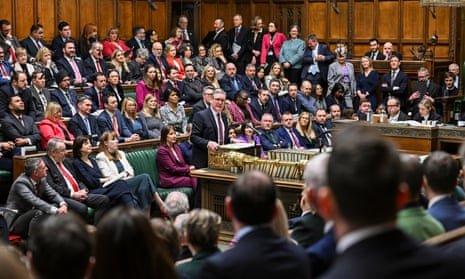UK Parliament Debates National AI Regulation Bill
UK Parliament reignited debates over comprehensive national AI regulation as lawmakers and ministers squared off over key aspects of the proposed framework. The clash highlights rising tensions around AI safety, copyright, industry growth, and the urgent need for a coherent, future‑proofed policy in an era of accelerating innovation.
🔄 Key Points of the Row
Parliament is currently addressing multiple overlapping legislative efforts:
- Data (Use and Access) Bill vs. AI Regulation Bill
- The Data Bill, now in “legislative ping‑pong,” has seen repeated attempts by the House of Lords to include mandatory copyright transparency requirements. Peers want tech firms to disclose which creative works were used to train AI models—but ministers claim this isn’t the right vehicle thetimes.co.uk+8thetimes.co.uk+8hansard.parliament.uk+8.
- A dedicated AI Regulation Bill—sponsored in the Lords by Lord Holmes—aims to introduce broader AI governance, safety regimes, and oversight mechanisms, but progress has stalled in the Commons for further debate osborneclarke.com.
- Copyright & Transparency Battle
- Baroness Kidron and creative-industry representatives argue that AI training is infringing on the estimated £126 billion creative sector, and future legislation should mandate disclosure or licensing of copyrighted data theguardian.com+2thetimes.co.uk+2reddit.com+2.
- So far, the government has rejected all amendments focused on this issue, promising to handle it in the forthcoming comprehensive AI bill instead thetimes.co.uk+15theguardian.com+15thetimes.co.uk+15.
- Delays and Political Strategy
- Originally promised by end‑2024, the AI Regulation Bill has been delayed to Summer 2026, partly to align with U.S. policy and avoid disrupting Britain’s attractiveness to global AI firms committees.parliament.uk+9theguardian.com+9lewissilkin.com+9.
- Technology Secretary Peter Kyle confirmed cross‑party discussions are underway, planning to incorporate copyright, access controls, model safety testing, and a new AI Authority into a unified framework theguardian.com+1thetimes.co.uk+1.
⚖️ Tensions Between Speed and Safety
- Pro‑innovation voices warn that rushing legislation could stifle growth, citing fears of overregulation akin to EU standards; the UK’s market-friendly approach favors regulation through existing bodies and flexible oversight committees.parliament.uk+7en.wikipedia.org+7reddit.com+7.
- Conversely, civil society and creative sectors warn that failing to regulate now risks massive intellectual property misuse and unchecked ethical breaches .
🌍 Broader Governance Context
- This debate comes as the UK has refused to sign the Paris AI summit declaration, citing national security concerns, while continuing efforts like its AI Safety Institute and international cooperation reddit.com+8committees.parliament.uk+8theguardian.com+8.
- PM Keir Starmer has emphasized a balanced view—encouraging AI innovation while preparing for techno‑governance through future regulation and infrastructure investment committees.parliament.uk+15theguardian.com+15pinsentmasons.com+15.
🔭 What Happens Next
- Resolution of ping‑pong on the Data Bill—either a compromise on transparency is reached or peers escalate via amendments in the Lords.
- Drafting of the comprehensive AI Regulation Bill, scheduled for the next King’s Speech (expected late 2025), likely to include copyright, safety, model testing, and oversight structure osborneclarke.com+13theguardian.com+13thetimes.co.uk+13.
- Public consultation and cross-sector engagement—including creative industries, AI labs, regulators, and civil rights groups—will shape final proposals.














